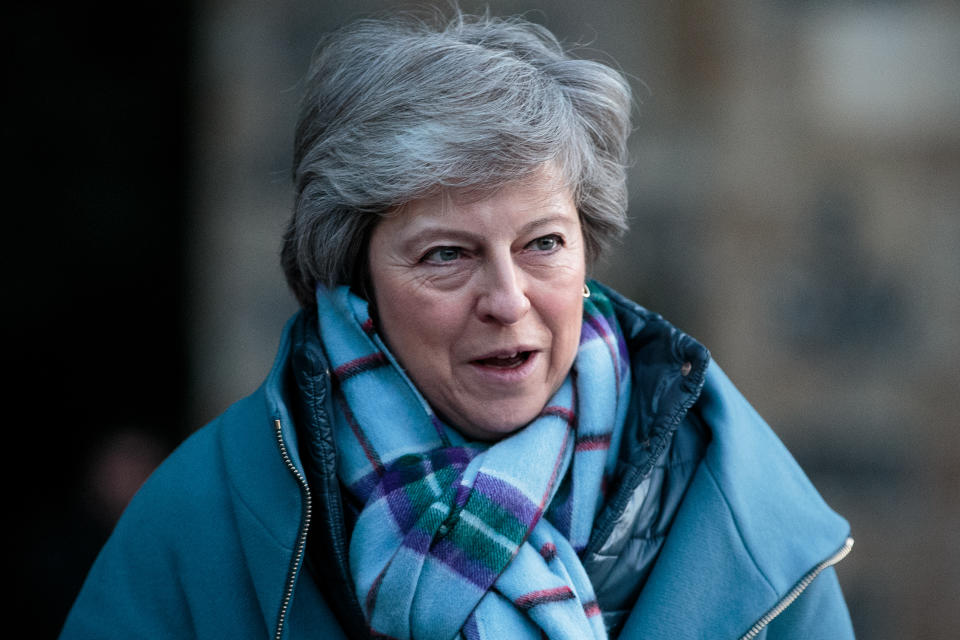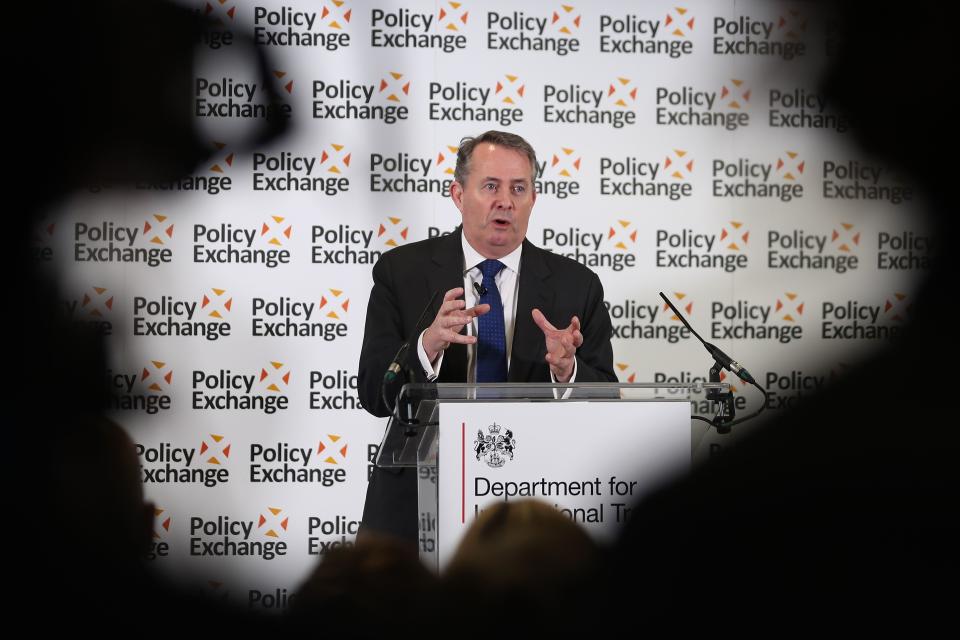UK mulls slashing all tariffs to zero if there's a no-deal Brexit

The UK government is actively considering the possibility of slashing all tariffs in the country to zero in the event of a no-deal Brexit, a move which would be calamitous for a range of industries including agriculture and manufacturers.
A spokesperson within the Department for International Trade confirmed to Yahoo Finance UK that this was “one of many options on the table” in a bid to fight the expected surge in prices that would come after a no-deal Brexit on 29 March.
“No decision has been taken and the government is currently considering all options in the event of a no-deal with the EU,” the agency said in a written statement.
As a whole, the UK has very low tariffs, except for some industries like agriculture and auto manufacturing. For example, tariffs for car imports into the UK and European Union are set at 10%.
Globally, tariffs are close to their lowest levels ever — averaging around 2.9% — according to the latest data from the World Bank. As a whole, developed nations have been lowering their tariffs for years, though non-tariff barriers and national regulations still present trading hurdles.
Sam Lowe, a senior research fellow at the Centre for European Reform, said that lowering tariffs to zero would potentially counteract some inflationary pressures after a no-deal Brexit scenario. But it wouldn’t be very effective.
“Ultimately, at best this would ensure prices wouldn’t rise too much,” he told Yahoo Finance UK.
“When you look at the literature, tariff savings are very rarely passed along to the final consumer…But when tariffs go up, that usually does get passed through,” he said.

Prime minister Theresa May is trying this month to rework her Brexit deal with the European Union in order to get the support of the majority of members of parliament. But political delays have created the possibility that the UK might leave the EU on the Brexit deadline with no formalised arrangements covering crucial issues including trade, migration, border control and even flights across the English channel.
In this scenario, it’s expected that the pound would drop sharply – leading to a surge in UK prices – and the country would have to re-impose border checks, which would slow down trade.
More than 50% of UK imports come from the European Union.
David Henig, director of the UK Trade Policy Project at the European Centre for International Political Economy, warned that certain British industries would suffer deeply if the government unilaterally scrapped all tariffs.
“Reducing all UK tariffs to zero would be potentially good news for consumers, but more troubling for UK producers in some key areas like automotive, ceramics, steel, and most of all agriculture,” he said.
“There would be adjustments, and almost certainly job losses, among UK producers. Coming on top of the uncertainties over a no-deal Brexit, and the tariffs UK producers could pay for exports to the EU, many producers will have serious worries about their future,” he said.
Industry reaction
The president of the National Farmers’ Union (NFU), Minette Batters, warned this week in an interview with Sky News that the country would be “subsumed by cheap [agricultural] imports” that would put her industry at a disadvantage. At the same time, many British agricultural companies would be temporarily locked out of shipping their wares to other countries or would face the “high-tariff wall of the EU.”
The British Ceramic Confederation has been lobbying against the potential tariff move and expressed its concerns this week directly to the secretary for international trade, Liam Fox.
“Any unilateral removal of UK tariffs on our imports, without any prospect of other countries reciprocating on our exports, would put British ceramic manufacturing at risk,” warned the head of the trade association, Laura Cohen, in a written statement. “It would give foreign competitors a boost, while putting our members’ home market at risk.”
“Liam Fox is concerned about the inflationary impact of Brexit, but this sort of fool hardy action in response could ruin British ceramic manufacturing by wrecking our home market. Moreover, it would massively weaken the UK’s hand in making free trade deals with other countries,” she said.

 Yahoo Finance
Yahoo Finance 